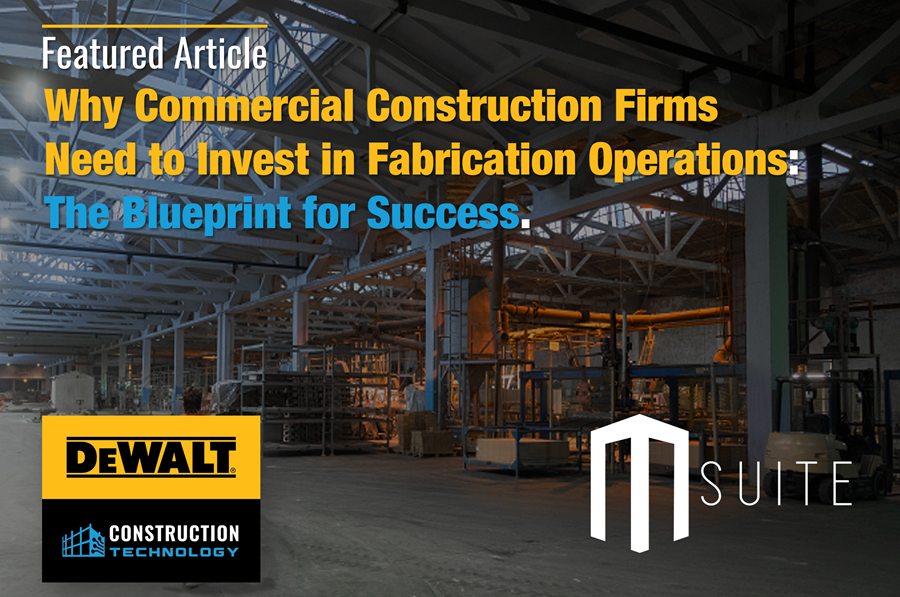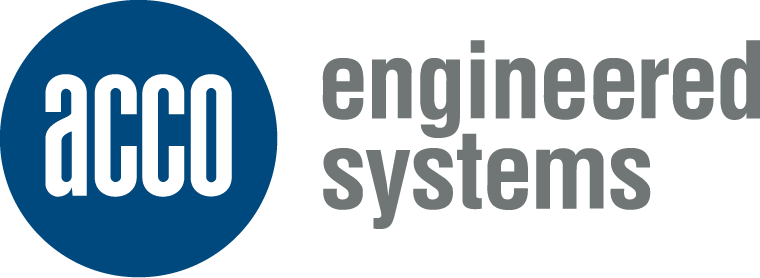Commercial construction is a complex and highly competitive industry where efficiency and precision determine a company’s success. In recent years, many construction firms have realized the importance of investing in fabrication operations. Fabrication involves the in-house creation of various building components, such as structural steel, concrete forms, and precast elements. Determining whether to in-house or outsource fabrication work is a crucial decision that depends on various factors, including the specific needs of your construction business, the nature of the project, and your long-term goals.
In this blog article, we will explore why commercial construction firms should make the strategic decision to invest in fabrication operations.
Cost Efficiency
One of the primary reasons for commercial construction firms to invest in fabrication operations is cost efficiency. Outsourcing various building components to third-party suppliers can lead to additional expenses and extended project timelines. When construction firms have their fabrication operations, they can control costs more effectively.
With in-house fabrication, your construction firm can optimize production schedules, reduce material waste, and eliminate markups imposed by external suppliers or delays that might be avoidable. This can lead to substantial cost savings over time, which is especially vital in a competitive industry where various cost overruns can quickly erode profits.
Quality Control
Fabrication allows your construction firm to maintain tighter control over the quality of building components. When you rely on external suppliers, you have limited oversight, and any quality issues that arise can lead to costly delays and rework. With in-house fabrication, you can establish and enforce strict quality control measures, ensuring that each component meets your exact specifications and industry standards.
This not only enhances the overall quality of the construction but also reduces the risk of structural issues and safety concerns down the line. It also helps gain the trust of clients who value the commitment to quality.
Customization and Flexibility
In-house fabrication provides construction firms with the flexibility to customize building components to meet specific project requirements. Standardized components from external suppliers may only sometimes fit the unique demands of a project. With in-house fabrication, firms can tailor components to specifications, ensuring a perfect fit for each project.
Additionally, adapting to design changes or unforeseen challenges during construction becomes much easier when fabrication operations are in-house. This flexibility can significantly reduce project delays and improve client satisfaction.
Shortened Project Timelines
Time is often of the essence in commercial construction. Delays can be costly, both in terms of finances and reputation. When construction firms have their fabrication operations, they can significantly shorten project timelines. They can produce components faster, eliminate the lead time associated with external suppliers, and streamline the construction process.
Moreover, having a well-organized in-house fabrication facility allows for better coordination between the design, engineering, and construction teams, leading to smoother project execution and quicker completion.
Increased Profit Margins
Investing in fabrication operations can increase profit margins for commercial construction firms. The cost savings from reduced outsourcing, optimized production schedules, and minimized rework directly contribute to higher profits. Furthermore, the ability to take on more projects simultaneously or complete projects ahead of schedule can lead to an expanded client base and increased revenue.
Enhanced Safety
Safety is paramount in the construction industry, and in-house fabrication can create a safer working environment. When components are fabricated off-site and transported to the construction site, there’s a decreased risk of accidents happening in the field. In-house fabrication reduces these risks by keeping the manufacturing process under your direct supervision.
Environmental Benefits
Sustainability is a growing concern in the construction industry, and in-house fabrication can contribute to a greener approach. By controlling the fabrication process, firms can better manage material waste and reduce the carbon footprint associated with transportation, job site installation, and rework-causing waste. Moreover, in-house operations allow for the recycling and reuse of excess materials, further reducing environmental impact.
Competitive Advantage
In a competitive industry, having in-house fabrication operations can provide a significant competitive advantage. Clients often appreciate the benefits of cost efficiency, quality control, customization, and quicker project delivery that come with in-house fabrication, making your construction firm stand out and attract more clients and projects.
By controlling costs and maintaining competitive pricing, in-house fabrication can make your bids more appealing to potential clients. Your ability to offer high-quality components at a reasonable cost can give you an edge in winning contracts.
Long-term Viability
Investing in fabrication operations is not just about short-term gains; it’s also about long-term viability. By having these operations in-house, construction firms can build expertise and a solid reputation over time, and not only secure a steady stream of projects but also positions your construction firm for growth and expansion in the future.
Innovation and Technology
Fabrication operations provide construction firms with the opportunity to invest in and stay updated with the latest technological advancements in the industry. Automation, advanced manufacturing techniques, and digital tools can enhance productivity, quality, and efficiency. Staying at the forefront of technological innovation can further solidify your firm’s position in the market. Automation can also eliminate mundane tasks in a controlled environment rather than relying on costly labor to do them in the field. Once you can find areas you can automate, you can empower your workforce to focus on higher value tasks.
Conclusion
Investing in fabrication operations is a strategic move that commercial construction firms should seriously consider. The benefits of cost efficiency, quality control, customization, flexibility, shortened project timelines, increased profit margins, enhanced safety, environmental sustainability, competitive advantage, long-term viability, and technological innovation make a compelling case for in-house fabrication. It not only improves a firm’s bottom line but also fosters client trust, enhances industry reputation, and positions the firm for success in a highly competitive field.
Moreover, it allows you to stay innovative and adapt to changing industry trends. As the construction industry evolves, those capable of in-house fabrication will be better equipped to meet its challenges and opportunities head-on.







